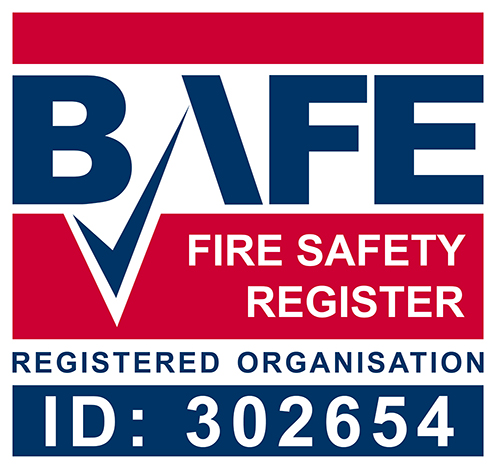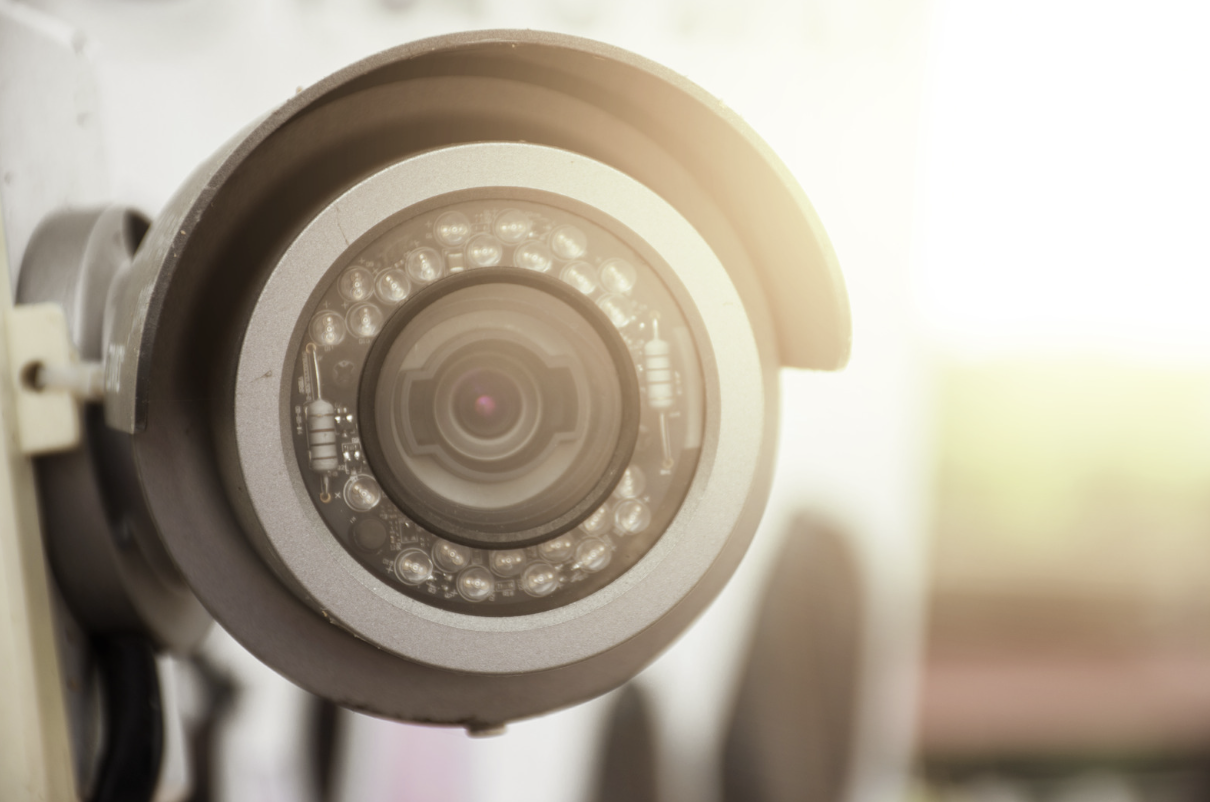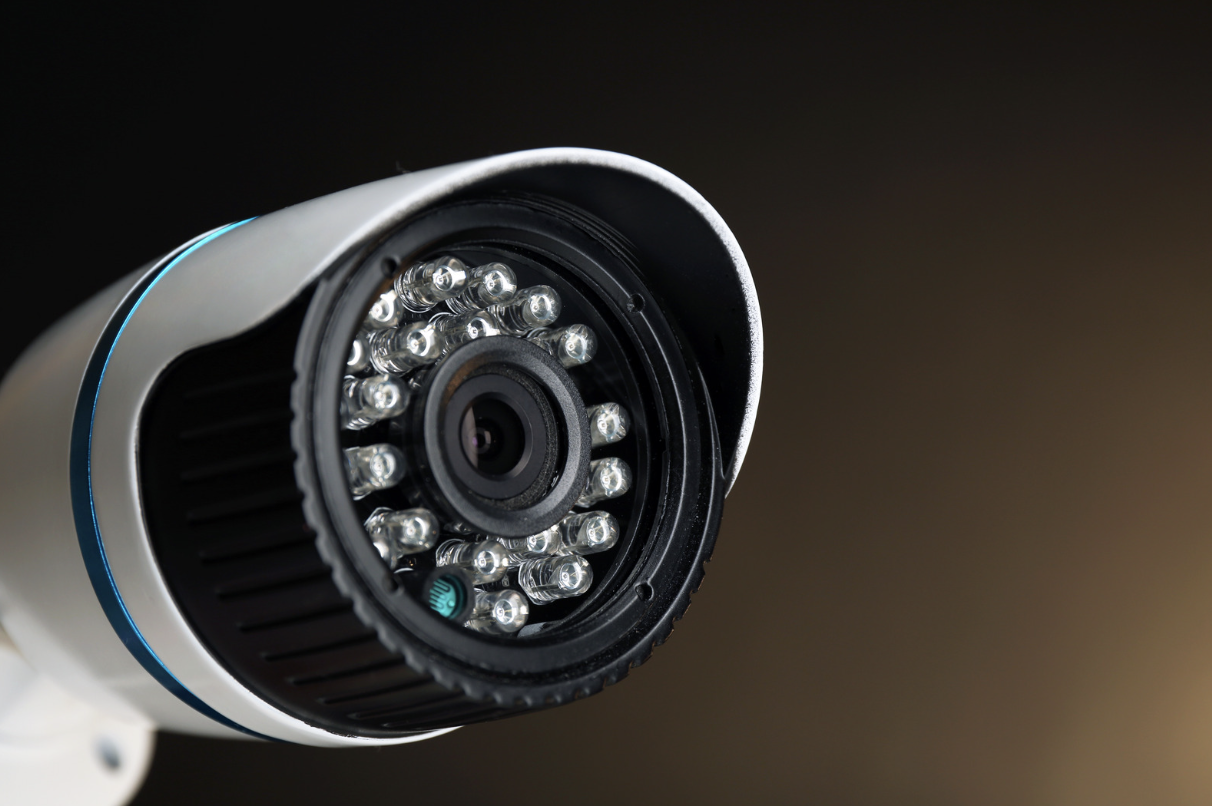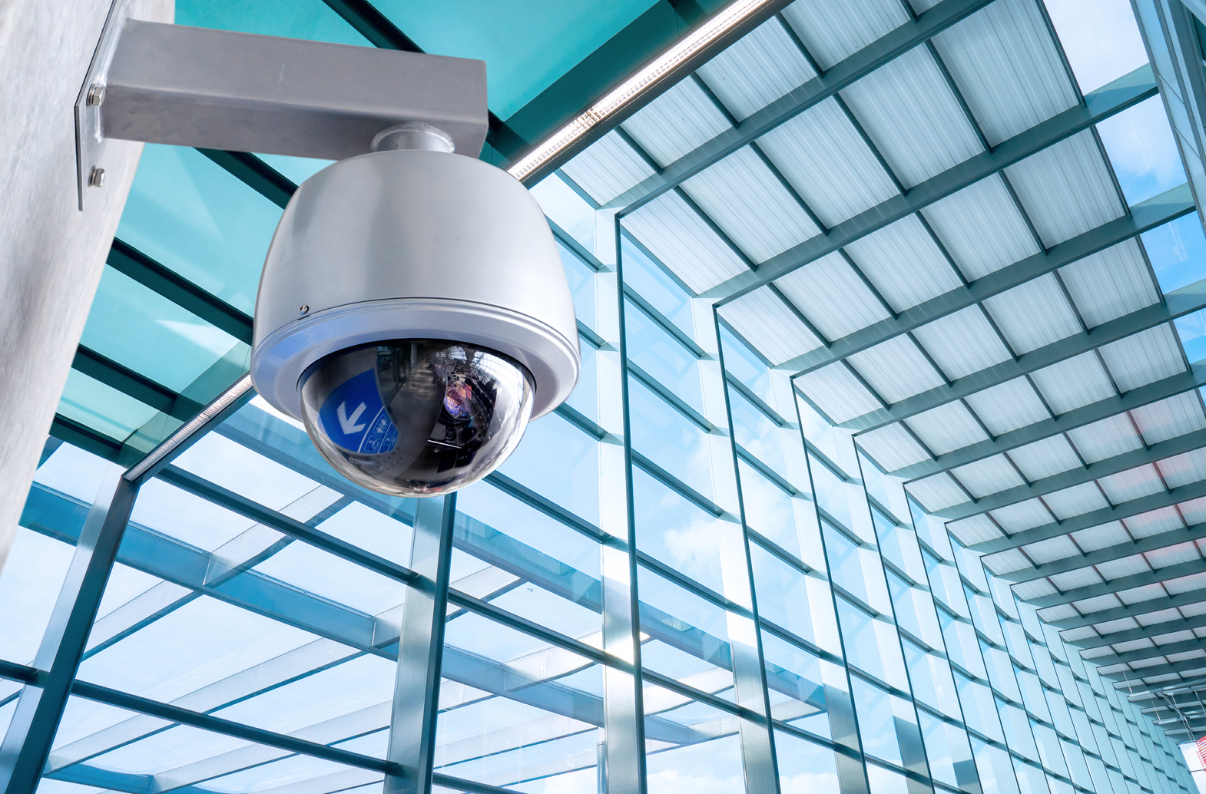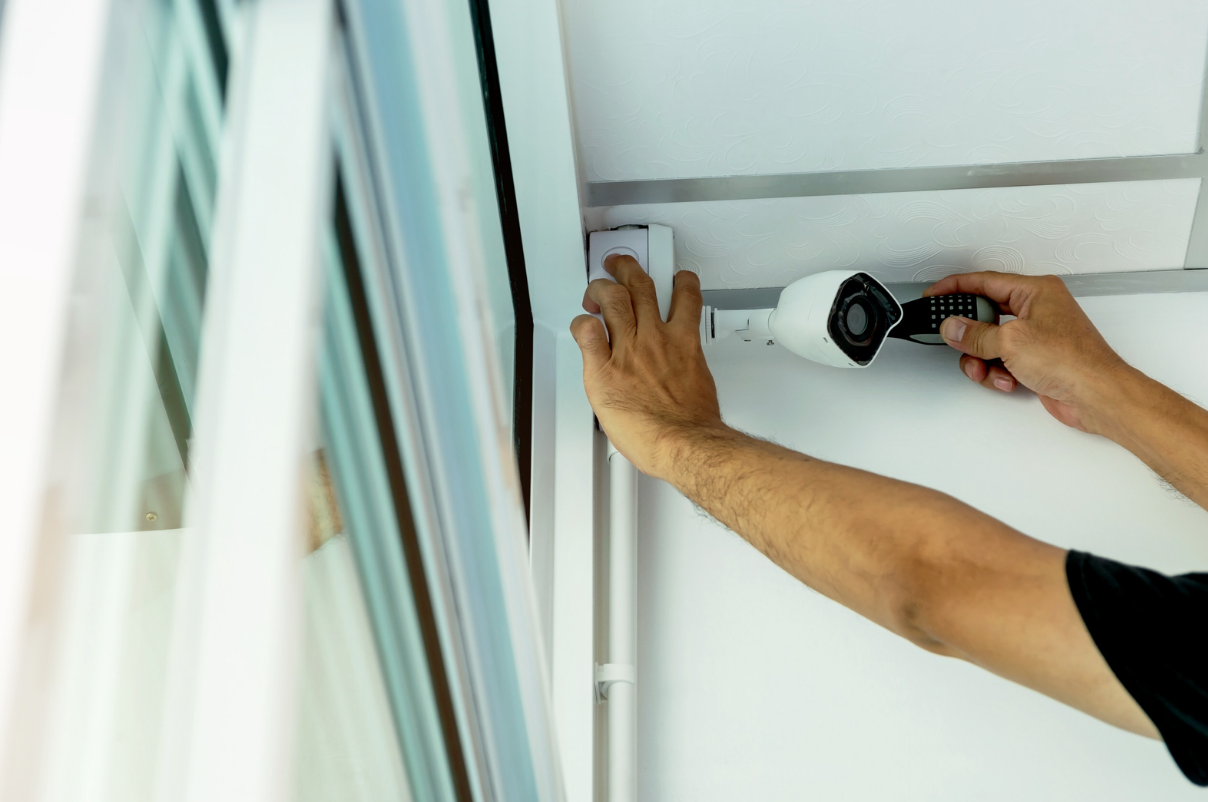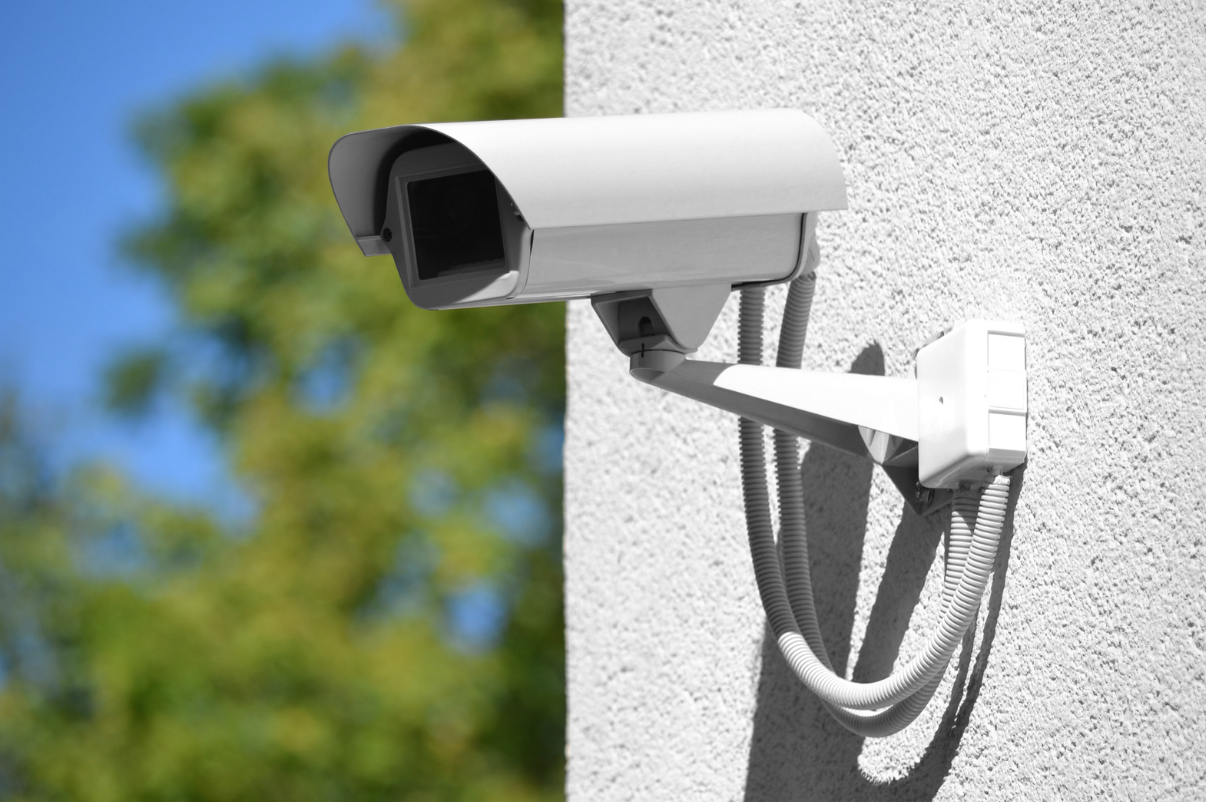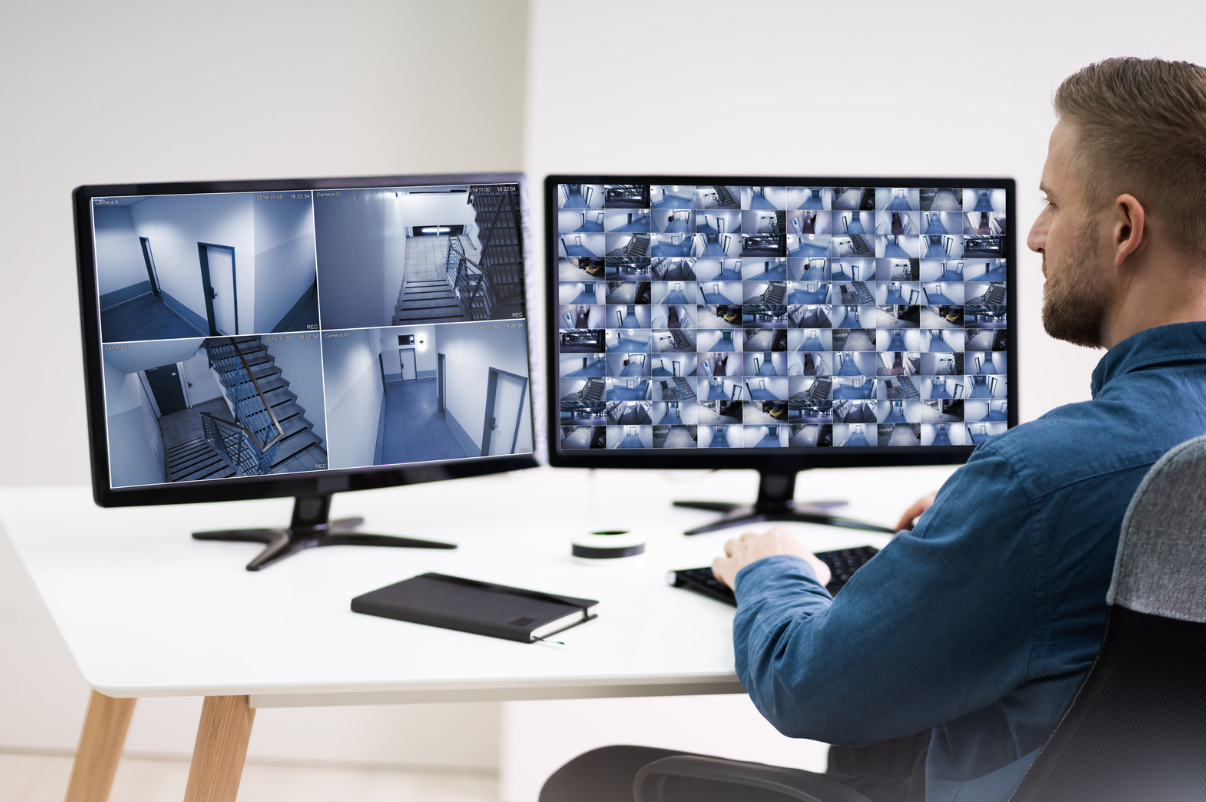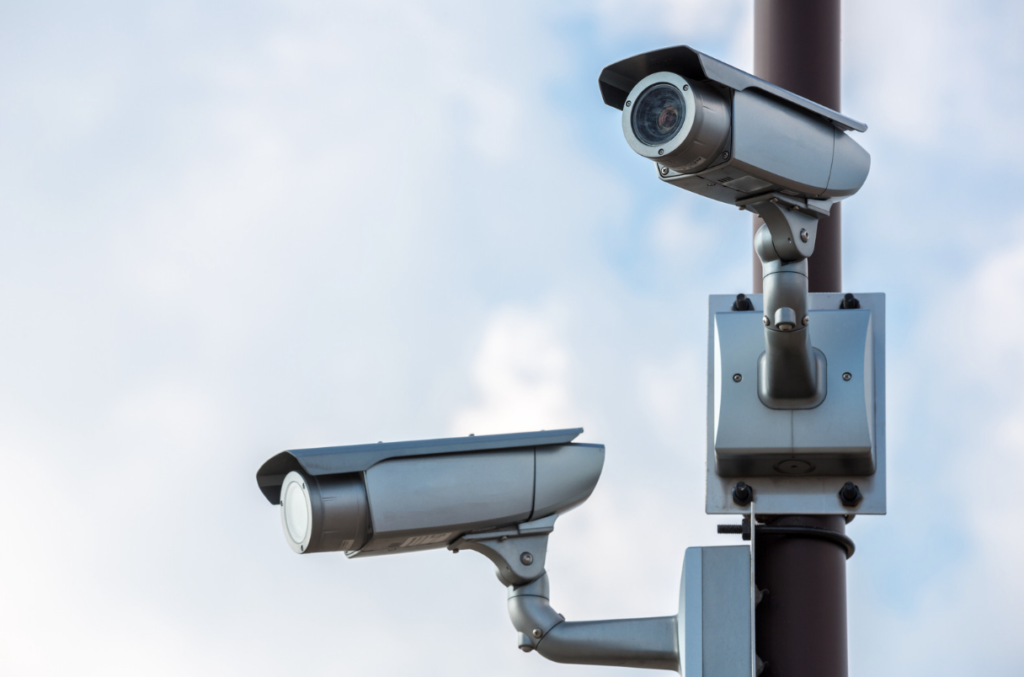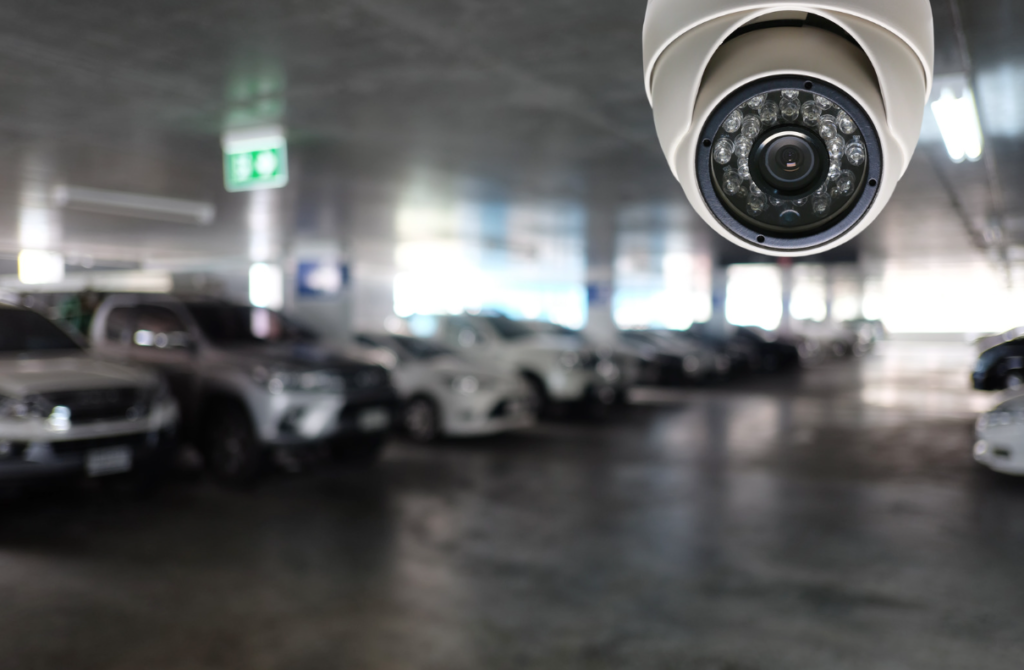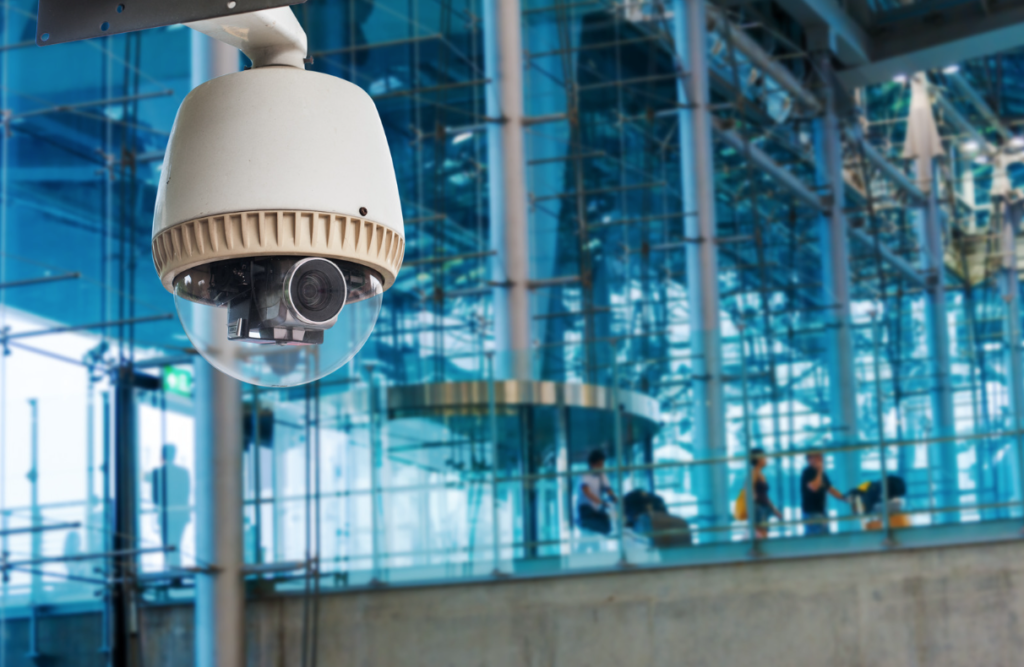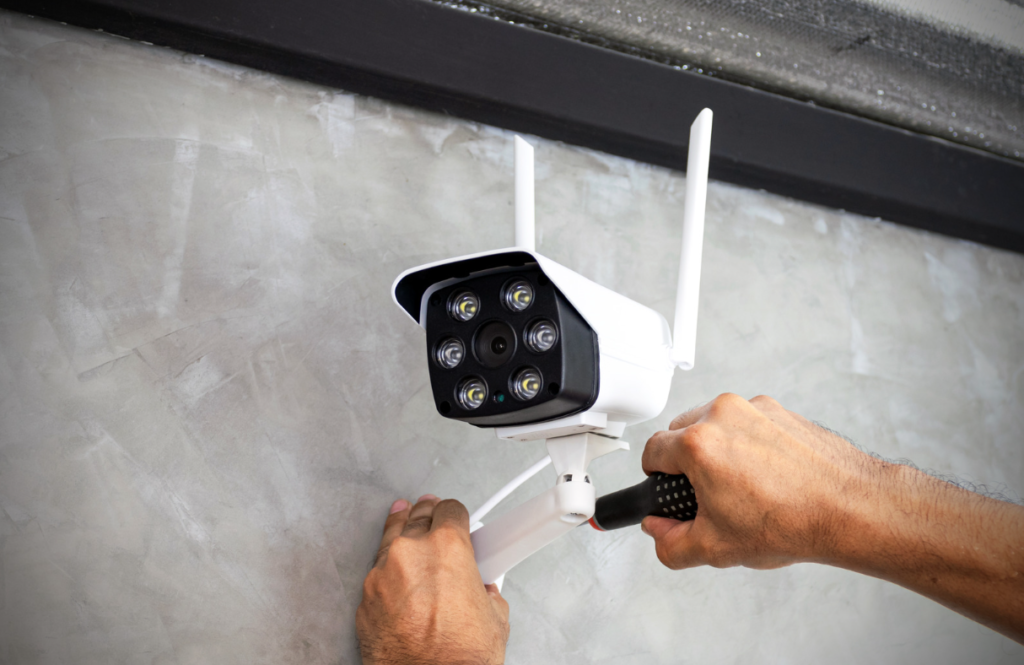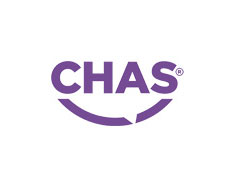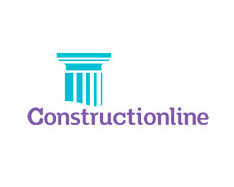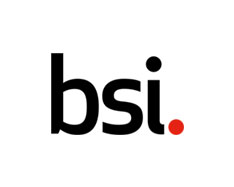What Is CCTV?
CCTV stands for Closed-Circuit Television (CCTV), a pivotal component in modern surveillance systems, and it refers to the use of video cameras to transmit a signal to a specific, limited set of monitors. Distinct from broadcasting television, a CCTV camera is typically used for security, monitoring, and safety purposes in both public and private settings.
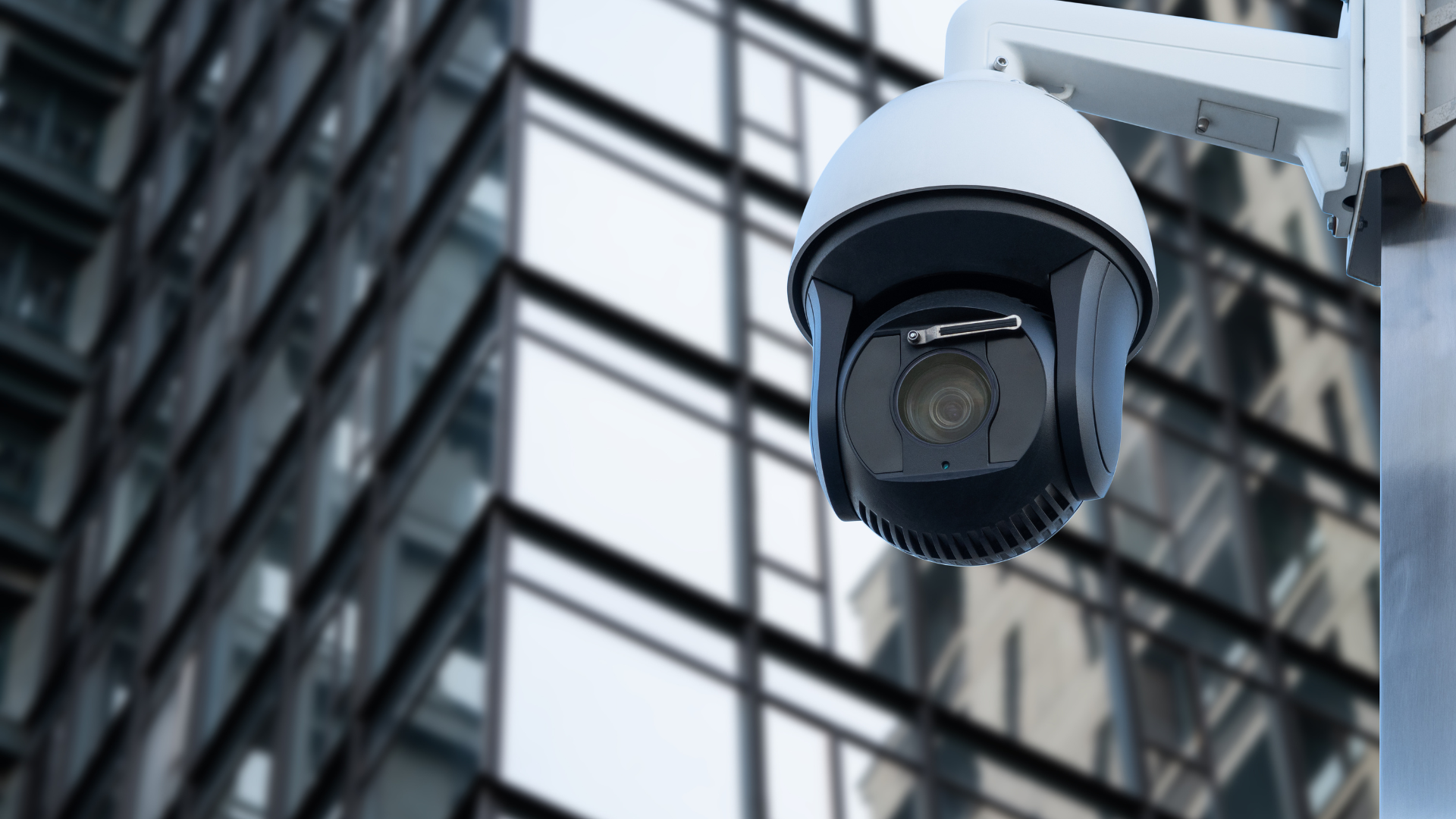
An Introduction To CCTV Systems
CCTV systems primarily involve a network of cameras that capture footage, which is then transmitted to a set of monitors.
These systems range from basic single-camera setups for small-scale monitoring to complex arrangements with multiple cameras, including fixed and remotely controlled Pan, Tilt, and Zoom (PTZ) types. Advanced configurations often incorporate digital recorders for storing large volumes of video and feature cutting-edge facial recognition and motion detection software, enhancing surveillance efficiency and security.
The integration of CCTV with other security systems like alarms represents the convergence of various technologies, providing comprehensive safety solutions for both public and private spaces.
Uses Of CCTV
CCTV systems serve various important functions in society, each addressing specific needs in different environments:
1. Crime Prevention
CCTV acts as a significant deterrent against crimes such as theft, vandalism, and break-ins. In urban areas, the presence of cameras on streets and in major retail areas can significantly reduce the incidence of petty crimes. Businesses utilise CCTV not only to safeguard against external threats but also to monitor internal activities, helping to prevent internal theft or misconduct.
2. Traffic Monitoring
One of the pivotal roles of CCTV is in managing and observing traffic. Cameras placed at strategic points like intersections, busy roads, city centres, and accident-prone areas help monitor traffic flow, identify traffic violations, and provide crucial information during road incidents. This application is often integrated with automated ticketing systems to enforce traffic rules effectively.
3. Industrial Processes
In industrial settings, CCTV is essential for monitoring operations, especially in areas that are hazardous for human presence. This includes chemical plants, nuclear facilities, and mechanical production lines. Cameras can detect machinery issues, track production progress, monitor employees and ensure adherence to safety protocols, significantly reducing the risk of accidents.
4. Safety Monitoring
Public spaces like parks, train stations, and shopping centres use CCTV for public safety in high-crime areas. By monitoring these areas, authorities can respond quickly to incidents, provide evidence for investigations, and generally ensure a safer environment. In the workplace, CCTV helps ensure employee safety, especially in sectors with a high risk of accidents.
5. Home Security
For homeowners, a CCTV camera offers peace of mind by allowing them to monitor their property, deter potential intruders, and gather evidence in case of a break-in. Modern home security systems often integrate CCTV with other security measures like alarms and access controls. With the advancement in technology, homeowners can now monitor their property remotely via internet-connected cameras.
The Different Types Of CCTV
Let’s delve into the diverse array of some of the CCTV cameras available, each uniquely tailored to meet specific surveillance requirements.
Digital Video Recorder
Digital Video Recorders (DVRs) form the backbone of traditional CCTV systems. They are primarily used with analogue cameras, converting the analogue signals into digital format. DVRs offer a range of functionalities, including real-time recording, playback, and archiving of footage.
They also facilitate remote viewing, allowing users to access live or recorded footage over the internet. The storage capacity and recording quality can vary, making DVRs a versatile choice for various applications.
Network Video Recorder
Network Video Recorders (NVRs) represent a more modern approach to CCTV recording. Unlike DVRs, they are used with IP (Internet Protocol) cameras and receive video data digitally over a network.
This setup allows for higher-resolution video recording and greater flexibility in camera placement since NVRs can be located anywhere on the network. NVR systems offer better scalability, making them suitable for both small-scale and large-scale video surveillance systems. Additionally, they often come with advanced features like enhanced video analytics.
IP And IR Cameras
IP Cameras: These digital video cameras transmit and receive data over a network or the internet. They offer higher image quality and greater installation flexibility, often including advanced features like motion detection and automatic alerts. IP cameras are ideal for scenarios where remote access and high-quality security footage are priorities.
Infrared (IR) Cameras: Specifically designed for low-light or no-light conditions, IR cameras use infrared LEDs to illuminate their field of view for night vision. They can capture clear footage in complete darkness, making them essential for round-the-clock surveillance in areas with poor lighting.
Day/Night Cameras
Day/Night Cameras are equipped to provide clear images under a variety of lighting conditions. They function optimally in both well-lit environments during the day and low-light conditions at night. These cameras have special sensors that adjust to changes in light, ensuring consistent video quality. This makes them particularly useful for outdoor surveillance, where lighting conditions can vary significantly.
Fixed Vandal Dome Cameras
Fixed Vandal Dome Cameras are designed for durability and discretion. Encased in a vandal-resistant dome, these cameras are protected against tampering and damage.
They are fixed to capture a specific view, making them ideal for monitoring specific areas like doorways, hallways, or cash registers. Their discrete design makes them less obtrusive and, therefore, suitable for both indoor and outdoor environments where aesthetics are a consideration.
PTZ Cameras
Pan-Tilt-Zoom (PTZ) Cameras offer a high degree of flexibility in surveillance. Operators can remotely control these cameras to pan (move horizontally), tilt (move vertically), and zoom in on specific areas. This functionality makes PTZ cameras ideal for monitoring large areas such as public squares, parking lots, or event spaces.
They are particularly useful in situations where active monitoring is required, allowing operators to follow activities or individuals in real-time.
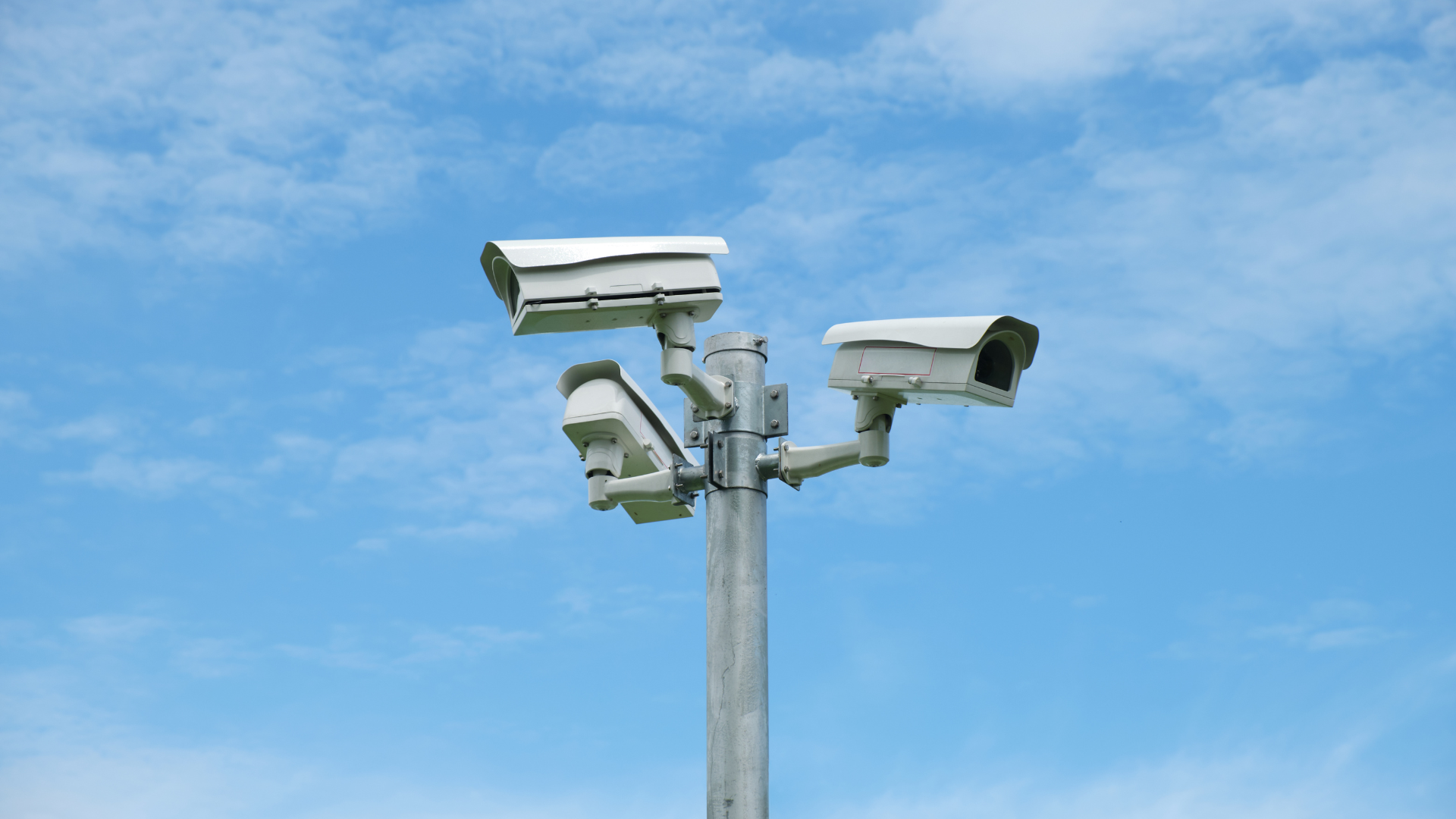
From Inception To Modern Day: The History Of CCTV Cameras
The journey of CCTV technology began in the mid-20th century. Initially developed for military and industrial use, the technology gradually found its way into public spaces.
The first major public deployment was in the UK for monitoring crowds during the coronation of Queen Elizabeth II in 1953. Over time, CCTV security systems have evolved from basic, grainy black-and-white images to the high-definition, colour footage we see today.
Their Prevalence Today
Today, CCTV surveillance is ubiquitous in both public and private sectors. Security cameras have become a common sight in cities, businesses, and homes around the world. Their presence serves as both a deterrent to criminal activity and a means of gathering evidence, contributing significantly to public safety and security.
Technological Developments In CCTV
Recent advancements in CCTV technology have been remarkable. The shift from analogue to digital formats has improved image quality significantly. Modern CCTV systems often incorporate Internet connections, allowing for remote monitoring and data storage. Additionally, the advent of wireless cameras has simplified installation processes and expanded the possibilities for camera placement. The ability to analyse camera footage using sophisticated software has also been a game-changer, enabling functionalities like facial recognition and motion detection.
Installing CCTV
When considering installing CCTV systems, several factors need to be taken into account. The cost of CCTV can vary widely depending on the system’s complexity, the number of cameras, and whether additional features like internet connectivity or high-definition footage are required.
To install CCTV effectively, it is essential to strategically plan the layout of cameras to ensure optimal coverage and consider the type of cameras suitable for your specific needs. The installation process ranges from relatively simple procedures for small-scale wireless cameras to more involved installations for comprehensive wired systems. Additionally, it’s crucial to account for the ongoing maintenance costs and potential upgrades in your CCTV cost estimates. Above all, ensuring that the installation complies with legal privacy regulations is paramount to avoid any legal repercussions and maintain the integrity of the surveillance system.
Choosing The Right CCTV System For Your Needs
Selecting a suitable CCTV system requires assessing your surveillance needs, the desired camera type (analogue, IP, or IR), and recording and storage capabilities (DVR or NVR). Consider scalability, budget, and seek professional advice for tailored solutions. Factors like image quality, area coverage, and storage capacity should align with your specific security requirements and the property’s layout.
Legal And Privacy Considerations
CCTV usage must comply with GDPR and the Data Protection Act 2018, ensuring lawful, fair, and transparent handling of footage. Privacy impact assessments, proper signage, restricted access to footage, and a clear retention policy are crucial. For public spaces, community consultation can address privacy concerns and enhance public support for CCTV deployment. These measures not only meet legal rules and requirements but also build public trust in surveillance systems.
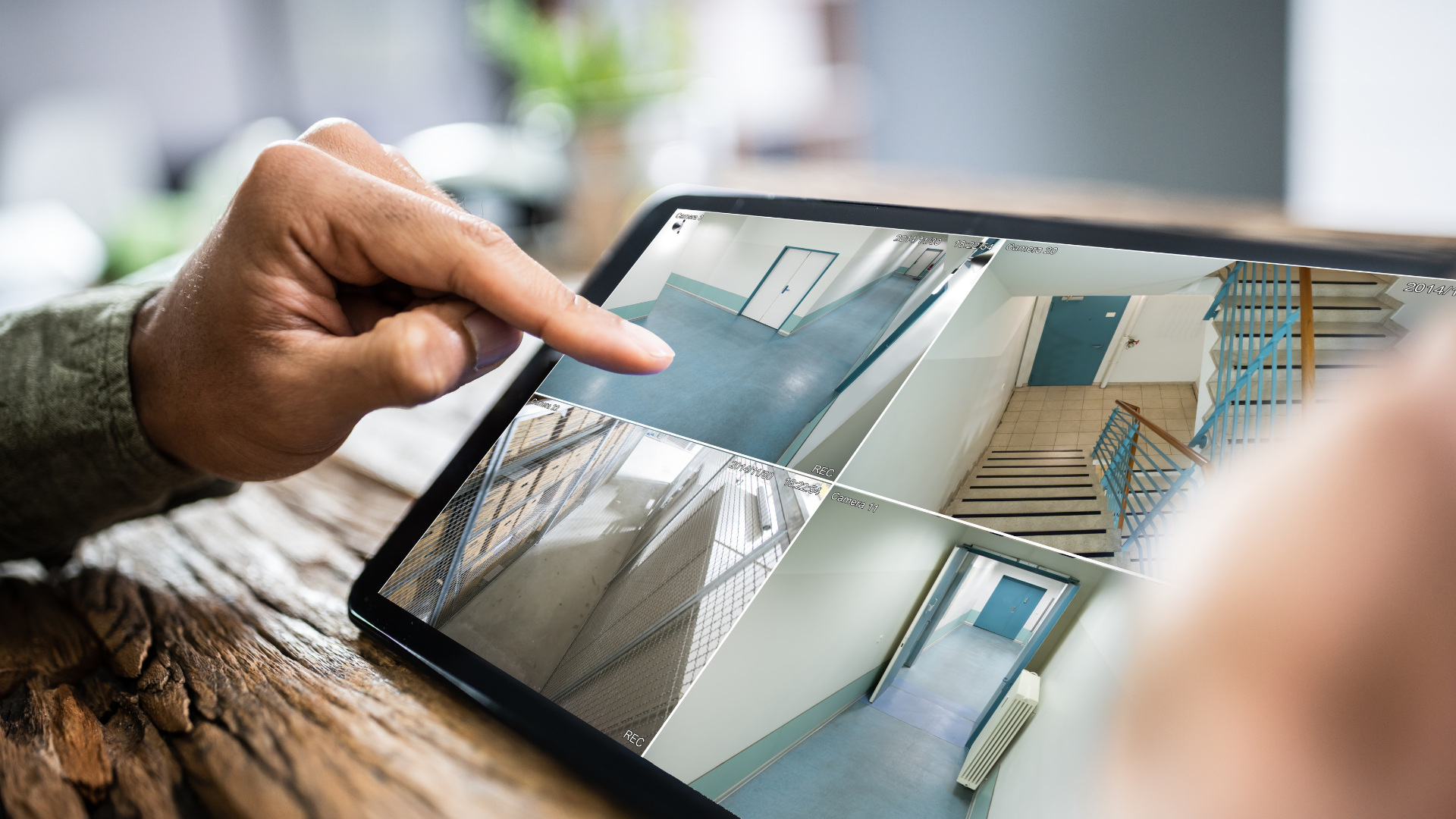
Our CCTV Solutions: About Us
Established in 1978, Clear Sound Fire & Security, based in Coventry, has been at the forefront of offering professional electronic solutions and services. With over four decades of authentic in-house experience, our technical expertise is unparalleled. Our spectrum of installations spans from sizeable commercial fire and security systems to domestic arrangements for households across Coventry, Warwickshire, and the West Midlands. We are committed to ensuring the safety and security of your home, family, or business.
Our extensive suite of security services comprises specialist CCTV system installations, remotely monitored CCTV, intruder alarms, access control, fire alarms, electronic gates and barriers, induction loops, and public address systems. Let us help bolster your security – reach out to us today!
Contact Us
Feel free to get in touch with our team for more information about your CCTV needs!
Phone: 024 7666 8366
Email: info@clearsoundsecurity.co.uk
Final Thoughts
CCTV systems have become integral to modern security strategies for both private and public spaces. From simple setups with just one camera to complex networks covering entire areas, CCTV provides a crucial layer of security.
Its ability to deter criminals, monitor environments, and provide evidence when needed makes it invaluable. The cost of CCTV and installation can vary, but the peace of mind and security it offers often outweigh these considerations. Whether for local government, business, or personal use, understanding the workings, applications, and benefits of CCTV is essential for anyone considering its implementation.
The Future Of CCTV
CCTV technology is rapidly evolving with advancements like AI and machine learning, enhancing surveillance capabilities. Future CCTV systems may offer behavioural analysis, predictive analytics, and more sophisticated facial recognition balanced with ethical and privacy considerations. The shift to cloud-based storage and integration with IoT devices will improve data management and monitoring capabilities. Additionally, advancements in 5G technology are expected to boost the efficiency of wireless CCTV systems, supporting high-definition video transmission.
Frequently Asked Questions
See below, where we have answered some of your most frequently asked questions about CCTV and what it is.
What Is CCTV And How Does It Work?
Closed-circuit television (CCTV) is a surveillance system that captures visual footage through cameras and transmits it to a set of monitors or recorders. The cameras in a CCTV system can be either wired or wireless. Wired systems, connected through cables, offer a stable and secure data transmission, making them suitable for large-scale or high-security installations.
On the other hand, wireless systems offer flexibility and ease of installation, transmitting footage over Wi-Fi or other wireless networks. The core components of a CCTV system include cameras, recording devices (such as DVRs or NVRs), and monitors for live viewing. This setup allows for continuously monitoring environments ranging from homes to public spaces and business premises.
What Is CCTV Used For?
CCTV systems serve various purposes, predominantly in security and surveillance. In retail environments and business premises, they act as a deterrent to criminal activities like theft and vandalism. Public transport systems and government buildings often employ CCTV for public safety and to monitor crowd movements.
In the workplace, these systems are instrumental in monitoring staff activities, ensuring safety protocols are followed, and enhancing operational efficiency. Beyond security, local authorities use CCTV for traffic monitoring and management, while some advanced systems integrate with access control to regulate entry into buildings or areas.
Do I Need A CCTV System?
Deciding whether you need a CCTV system hinges on your specific security and surveillance needs. For homeowners concerned about property safety, CCTV provides a visual deterrent to potential intruders and a means to document incidents. In a business context, CCTV systems are invaluable for overseeing operations, managing staff, and protecting assets. The presence of cameras can enhance employee accountability and deter internal theft. For public spaces, such systems contribute to public safety and can assist in crime detection and prosecution.
What Is The Meaning Of CCTV?
CCTV stands for Closed-Circuit Television, highlighting its key characteristic of being a closed system. Unlike broadcast television that transmits openly, CCTV sends its signal to a specific, limited set of monitors and recorders. This design ensures privacy and control, making it ideal for surveillance and security applications. Its usage spans across various domains, from private properties to public spaces, providing a controlled and secure means of monitoring and recording activities in the covered areas.
How Do I Know If My CCTV Is On Or Off?
To determine whether a CCTV system is operational, look for visual indicators on the cameras, such as LED lights, which usually indicate power status. On the monitoring side, check if the monitors or recording devices are displaying live footage or are actively recording. Modern CCTV systems often come with user interfaces or applications where operational status indicators, such as ‘online’ or ‘recording’ signals, can be easily checked. Regular maintenance checks are also recommended to ensure the system is functioning as intended.


